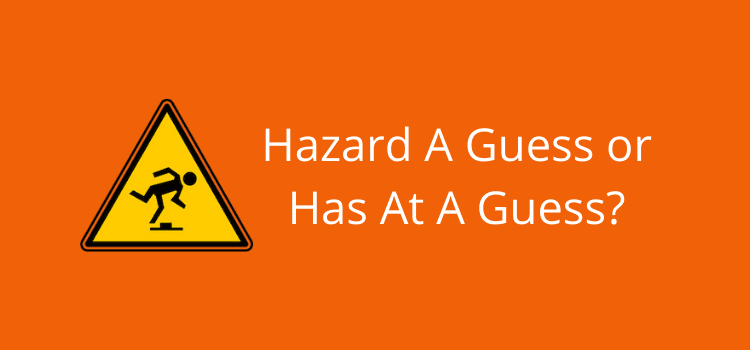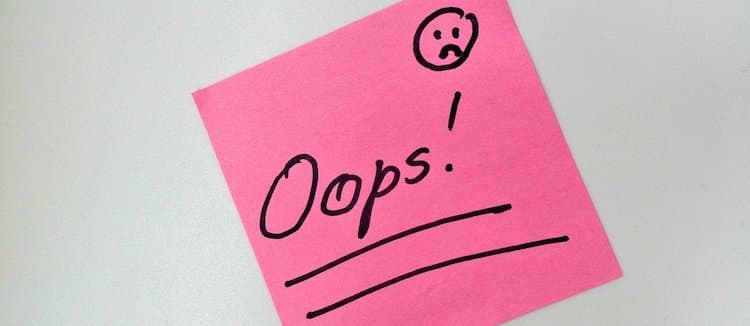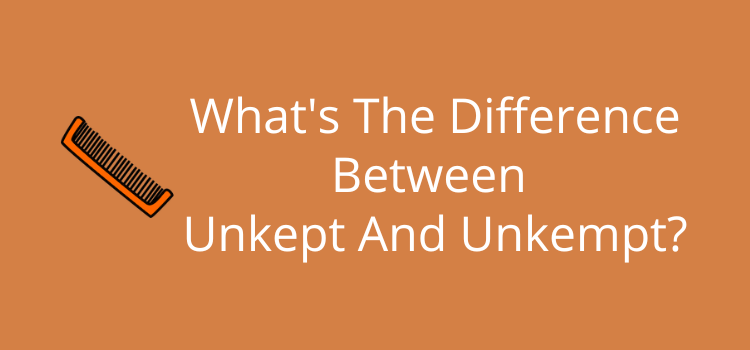
Hazard a guess, has at a guess, or has it a guess?
You often see these three expressions used in writing. However, the correct phrase is hazard a guess.
Because the phrases sound almost the same when speaking, it’s very easy to get the expression wrong.
But yes, to have a guess is perfectly correct. So why do we use hazard?
Why is hazard a guess correct?
We use the word hazard mainly as a noun, which means there is a danger or a risk.
But we rarely use the word as a verb.
When we do, the meaning changes considerably.
It indicates that you say something in an uncertain, tentative, or doubtful way.
The verb form derives from the French term par hasard, which roughly translates to, by chance.
The origin of par hasard perhaps comes earlier from Spanish azar, from Arabic az-zahr meaning chance or luck, or Persian or Turkish zar meaning dice.
The two expressions are very common in English and French and have similar meanings.
To hazard a guess
Hasarder une idée
They mean to make a prediction, estimate, or make an assumption.
Why is has at a guess wrong?

The problem is grammatical.
You can certainly use the phrases, have a guess, or take a guess. They are both perfectly correct.
But when we use the third person form of have, which is has, the problems begin.
The first is that the verb agreement is wrong when you form it using modal verbs.
An infinitive verb always follows modal verbs.
I would has at a guess that it will be warmer on the weekend. (Incorrect)
I would have a guess that it will be warmer on the weekend. (Correct)
He could has at a guess, but I’m sure he’ll be wrong. (Incorrect)
He could have a guess, but I’m sure he’ll be wrong. (Correct)
Then, there is the problem of verb agreement with the first person if there is no modal verb.
I has at a guess, three weeks to pay the bill before things might get nasty. (Incorrect)
I have a guess that I’ve got three weeks to pay the bill before things might get nasty. (Correct)
Whenever you see the incorrect form of this expression, you’ll often notice a grammatical error occurring.
Examples of hazard a guess
Here are a few sentences using the correct form of the expression.
If I were to hazard a guess, I’d say that your power cable might be the problem.
Do you want to hazard a guess at who’s going to win the final?
I don’t speak French. So, I can’t even hazard a guess at what it means.
I would hazard a guess that the total cost of repairs will be around $2,500.00.
Once you know the correct expression, it’s very easy to use.
Most commonly, it uses conditional or modal verbs such as would, could, might, can, or perhaps to indicate levels of uncertainty.
It’s a very common mistake

Once you know about the correct form of the expression, you start noticing mistakes in writing.
You only need to do a Google search to find examples.
I won’t give links to these to avoid embarrassment, as some are by authors.
Hoping someone with better skills than me can has at a guess for an address in Crewe circa 1959.
My smartphone battery has at a guess 2/3 – 3/4 original capacity 2.5 years later.
One can only has at a guess.
They always look shocked, I’m not going to has at a guess why.
I would has at a guess you have a problem with your intent.
Renewable energy has at a guess always been possible.
I would has at a guess that the Mods thought it was deemed as Commercial Advertising.
If you have been making this mistake, don’t feel too bad. Some of the examples above are from newspapers and popular blogs.
Sounds the same, but not in writing

It’s so common to fall for the trap of phrases or words that sound the same.
But when you’re writing in a hurry, it’s easy to overlook an error. Hopefully, you’ll pick it up when editing or proofreading.
Homonyms are always tricky.
Do you use walk past or walked passed?
Is it bear your soul or bare your soul?
Should you use free rein or free reign?
Why is it a moot point and not a mute point?
What’s the difference between mincemeat and minced meat?
Are you on tenterhooks or tender hooks?
Is it wreak havoc or wrought havoc?
Is a derelict house unkept or unkempt?
Is it straight-laced or strait-laced?
Yes, there are lots of opportunities in English to get things wrong in writing.
Summary
Writing is a tough job.
People judge you by every word you use, and readers are quick to let you know when you get something wrong.
There is no easy way to produce quality writing. All you can do is be attentive to where mistakes can happen.
If you’re not sure, always check. Use a dictionary, check online, or refer to a style guide.
But the good news is that once you identify a mistake, you’ll rarely make it again.
Related Reading: Bated Breath And Baited Breath Always Cause Confusion
Share This Article


